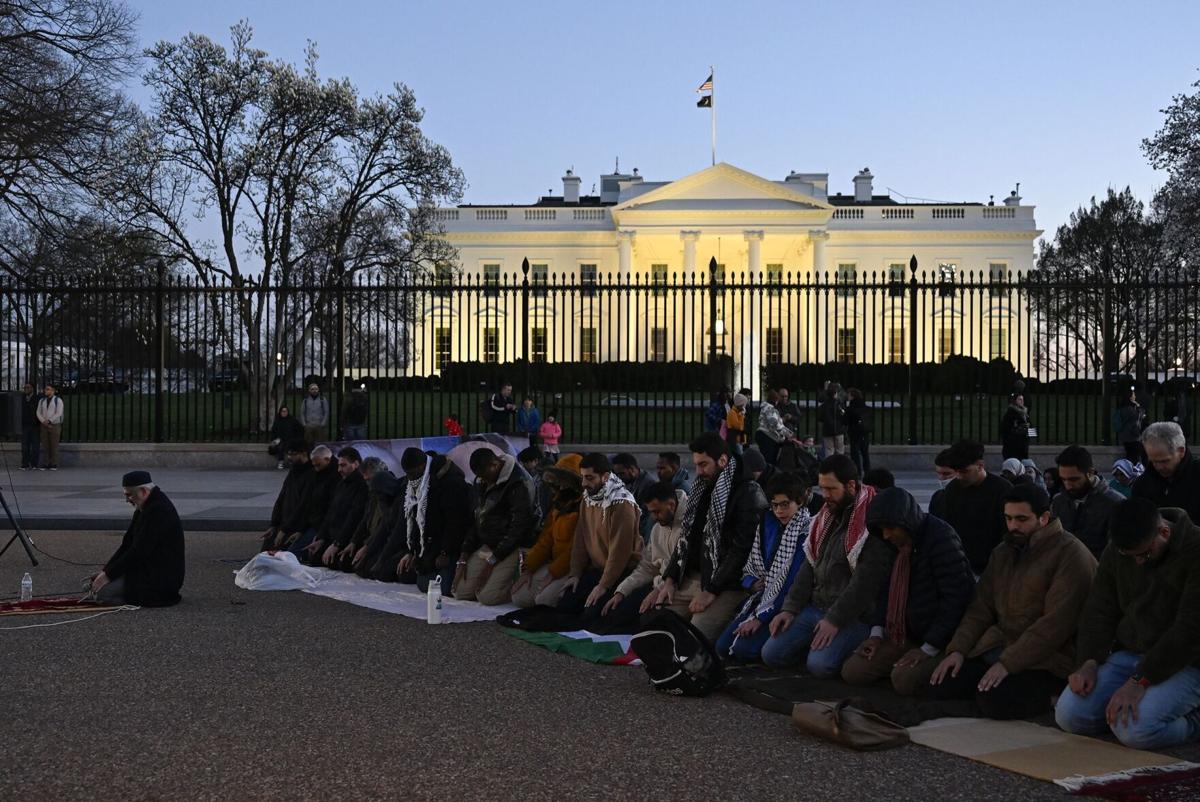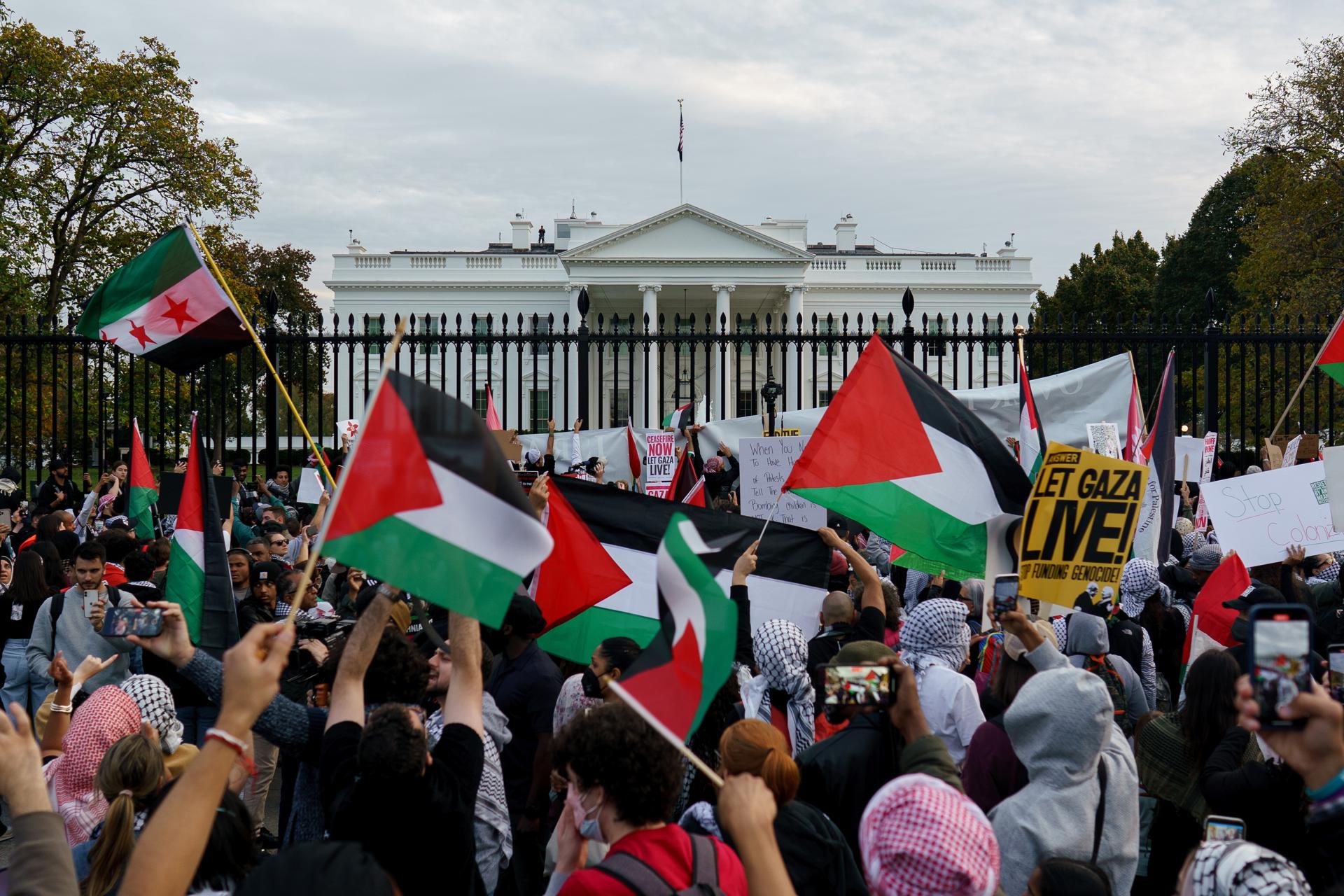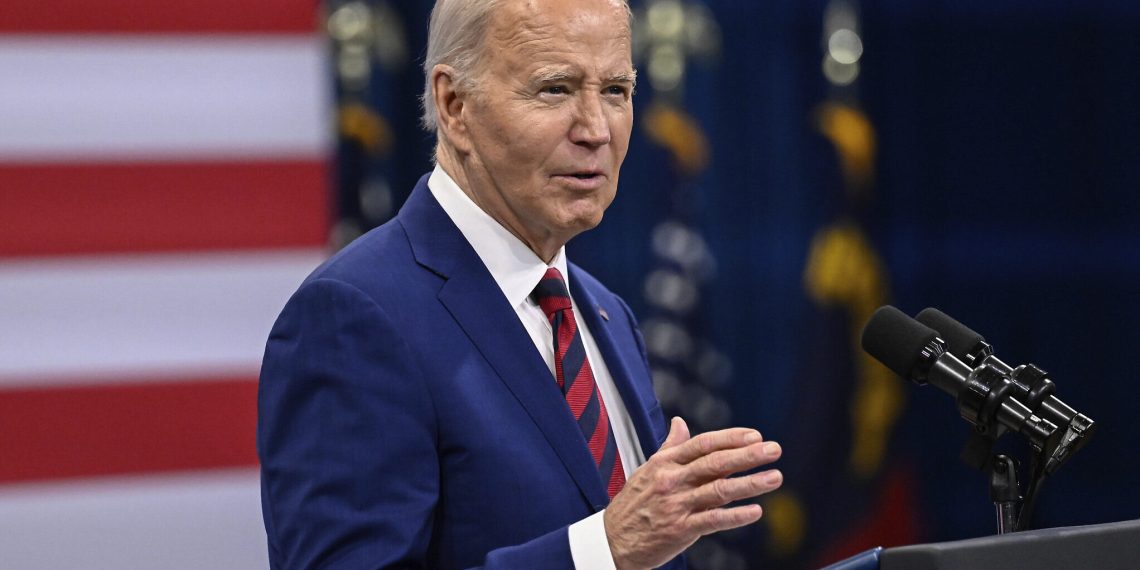The White House hosted a subdued iftar dinner to observe Ramadan, with President Biden meeting Muslim leaders before a small gathering with senior officials, including Vice President Kamala Harris.
The scaled-back event followed refusals from some invitees, highlighting tensions over Biden’s stance on the Israel-Gaza conflict.
White House Press Secretary Karine Jean-Pierre explained the adjustment, stating community leaders preferred a meeting over a dinner.

Dr. Thaer Ahmad, an ER doctor who spent time in Gaza, walked out of the meeting in protest, citing respect for his community and those affected by the conflict.
Despite assurances from Biden, Ahmad felt the need to leave. This contrasts sharply with last year’s Eid reception, where Biden celebrated with enthusiasm. Muslim representatives, including Ilhan Omar and Rashida Tlaib, who attended that event, now criticize Biden’s Gaza policy.
Emgage Action, a Muslim advocacy group, declined Tuesday’s dinner invitation, denouncing Biden’s unconditional military aid to Israel, which they blame for a humanitarian crisis in Gaza.
Many express frustration over U.S. support for Israel’s military actions and its impact on Gaza’s civilian population. Protests were held near the White House, symbolizing discontent with the administration’s stance.

Biden’s engagement with Muslim communities faces scrutiny amidst ongoing conflicts. The White House’s attempt to maintain traditions during Ramadan is overshadowed by complex geopolitical tensions.
As debates continue over U.S. policy in the Middle East, Muslim voices seek recognition and meaningful dialogue to address humanitarian concerns.
Amidst policy disputes, the White House observes Ramadan with a toned-down iftar dinner. Muslim leaders express frustrations over Biden’s approach to the Gaza crisis. Protests highlight discontent over U.S. support for Israel amid regional conflict.




